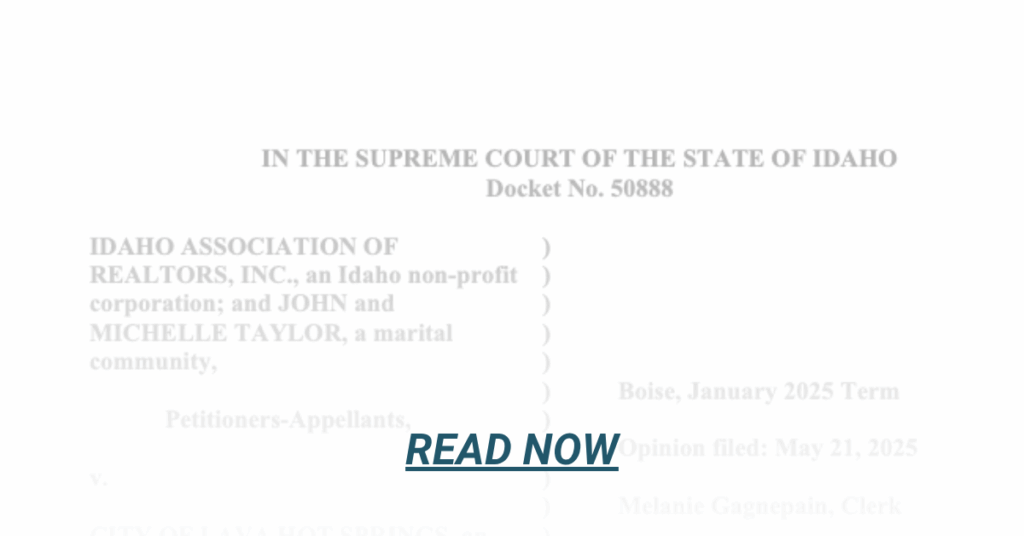Updated on May 28, 2025
In a decision that could reshape how Idaho cities regulate vacation rentals, the Idaho Supreme Court has overturned a Lava Hot Springs ordinance prohibiting non-owner-occupied short-term rentals in residential zones.
The case centered around John and Michelle Taylor, Lava Hot Springs homeowners who were denied a business license to operate a vacation rental in a residential zone. Backed by the Idaho Association of Realtors, the Taylors argued the city’s ordinance effectively banned vacation rentals, in contradiction with the state’s Short-Term Rental and Vacation Rental Act.
That law, passed in 2017, protects homeowners’ right to rent their properties on a short-term basis. It prohibits cities and counties from enacting ordinances with the “express or practical effect” of banning short-term rentals.
Lava Hot Springs had argued that its ordinance didn’t constitute a ban since it allowed owner-occupied bed and breakfasts in residential areas and all types of short-term rentals in commercial areas.
The court rejected that argument, stating that “regulations are distinct from prohibitions.”
“The legislative intent in adopting the Act is not just to foster access to some short-term or vacation rentals within a city, but to all of them,” Chief Justice G. Richard Bevan wrote in the court’s unanimous opinion.

Lava Hot Springs, a town of fewer than 400 residents, draws more than 400,000 tourists annually, according to the Chamber of Commerce. A 2022 city study found that nearly 30% of housing units in the town were listed as short-term rentals, according to court documents. This influx of visitors raised concerns over parking, noise, and home affordability within the small community.
While the court acknowledged the city’s concerns, it ruled that cities may not address those concerns by enacting blanket prohibitions on an entire category of short-term rentals.
“Under the plain language of the Act, cities are free to implement necessary regulations to safeguard the public health, safety, and general welfare of residential neighborhoods,” the opinion stated.
“But such regulations may not amount to express or practical prohibitions on any one of the three types of short-term rentals.”
The ruling reverses a lower court decision and bars the City of Lava Hot Springs from enforcing the ordinance. The court also awarded the petitioners’ court costs on appeal.
However, the implications of the decision extend beyond Lava Hot Springs.
“This victory ensures that STR owners receive the full protection of Idaho law,” said Melissa Radford, Vice President of Advocacy and Government Relations at the Idaho Vacation Rental Alliance. “The Court’s ruling sends a clear message that local governments cannot manipulate regulations to unfairly restrict property rights.”
The Idaho Association of Realtors praised the decision, calling it a win for property owners statewide.
“This outcome is a testament to REALTOR advocacy in action,” the organization said in a public statement. “Your continued support and engagement have made a direct and meaningful impact, demonstrating how collective advocacy efforts protect property rights statewide.”
“Together, we have strengthened property rights protections in Idaho, ensuring greater clarity and security for homeowners and property investors across our state.”
…
GET UPDATES

